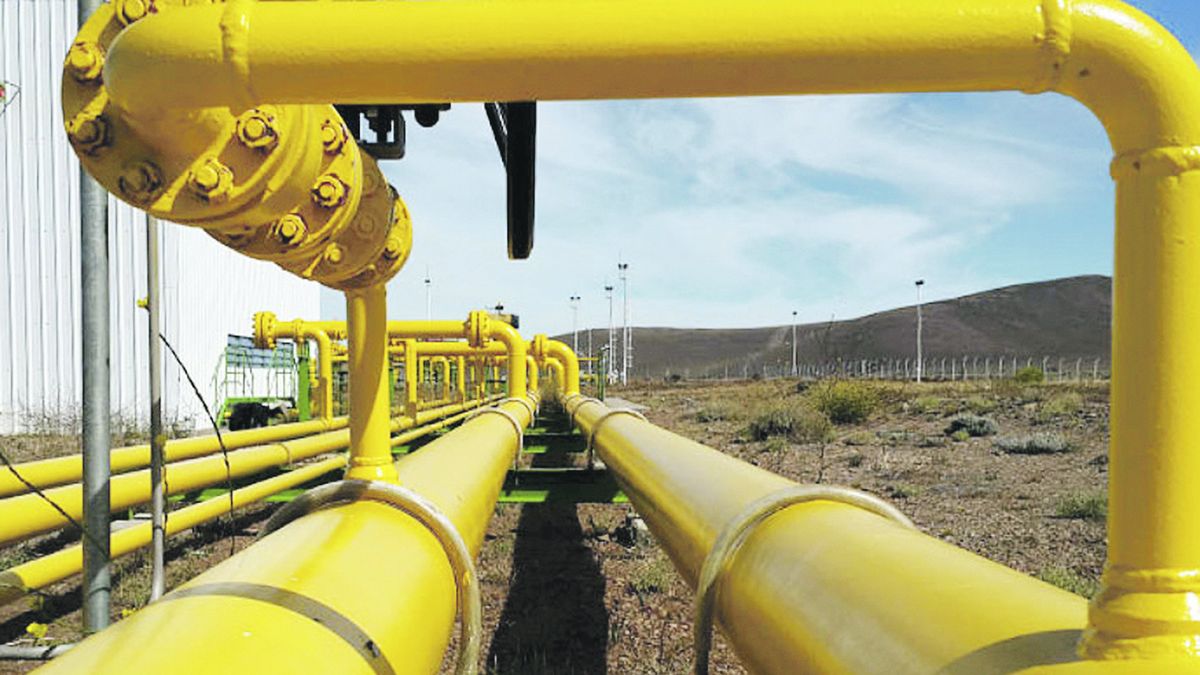The government is excited about reaching a milestone in 2024, despite not knowing if they will continue to command from the Casa Rosada after the elections. The Ministry of Economy, headed by Sergio Massa, plans to finish the first stage of the Néstor Kirchner (NK) gas pipeline in June, and begin the second stage and expansion works on three other gas pipelines. The savings from substituting energy imports would exceed US$4.2 billion and Argentina could once again have a surplus in the energy balance after 14 years.
To achieve this, a series of steps will need to be fulfilled. On the one hand, the completion of the first stage of the NK gas pipeline. Agustín Gerez, president of the state company Energía Argentina (formerly Enarsa) reported that On June 20, the 573-kilometer section that goes from Tratayén to Saliquelló will be operational. In a webinar of the Electronic Gas Market (Megsa), he explained that it will add 11 million cubic meters (MMm3) of capacity, and then with the two compression plants (one will be in July and the other in August) another 10 MMm3 will be added.
Despite the delays in commissioning, the pipeline is currently 45% complete, and by June, when it is operational, it will have reached 75-80% complete. This occurs because in order to reach 100%, tasks inherent to the end of a work must be completed, such as the recomposition of the soil, but they will not wait for that to start it up, sources close to Gerez explained.
In any case, from the Government they always clarify that the work is being carried out in record time, and “as in any work, there may be unforeseen events.” For example, a complex stage is currently being entered with the crossing of the Colorado River and the installation of valves with adapters.
Only if the Government completes stage 1 of the NK pipeline, It foresees a saving of US$ 4,293 million, due to the substitution of imports of diesel, fuel oil and LNG for generation, an amount that will be reached between the winter of 2023 and 2024. Then, if the reversal of the North gas pipeline and the second stage of the NK are completed, another US$3,168 million will be added, reported Gerez. With the second stage, the former Enarsa estimates that 39 MMm3 could be transported, which will imply an expansion of 25% of the total capacity of the trunk system.
However, some analysts specialized in the energy sector that Ámbito consulted still see the completion of the second stretch, which will go from Salliqueló to San Jerónimo, still a long way off. On the one hand, because the bidding documents have not yet been submitted. Gerez advanced that “The idea is to leave that work awarded and with the start of work at the end of the current management”that is, in December 2023.
But in addition to the tender, the second tranche needs financing. This Thursday, Massa announced from the United States that the Saudi Sovereign Fund to invest $500 million in infrastructure, and part of these funds will go to the purchase of tubes for the second section of the NK gas pipeline, and also for the La Carlota-Tío Pujio pipeline. The second tranche also has the confirmation of US$540 million from the Andean Development Cooperation Bank (CAF)and it is expected that Brazil finances US$689 million, through the National Development Bank of Brazil (Bndes). Even so, more financing still needs to be obtained: although official sources do not yet have a precise number of how much it will cost, it is estimated that it will be an amount similar to the first tranche, of US$2.5 billion.
With greater infrastructure and production, Argentina could once again have a surplus in the energy balance in 2024, according to illusion from the Government. It would be a significant fact from macroeconomics, that It hasn’t happened since 2010, 14 years ago, according to Daniel Dreizzen, a consultant at Aleph Energy-Ecolatina. Dreizzen estimates that this year the balance will close negative at around US$2.5 billion, and next year positive at US$4.000 million. From other consultancies such as Economía y Energía, by Nicolás Arceo, they also have projections with a positive sign for next year.
Balance of the energy sector.jpeg
In any case, to achieve this, the already launched pipeline expansion projects from Vaca Muerta will need to be fulfilled, Dreizzen estimated, although he also assured that the key will go through oil, if the expansions to Chile and the Valle pipeline are completed. Along the same lines, Juan José Carbajales, a professor at the UBA, estimated that the surplus will be reached by lower imports of LNG due to more local production of natural gas from Vaca Muerta, greater exports of crude oil from Bahía Blanca and the authorization of the trans-Andean pipeline of YPF.
star industry
Despite the fact that 2023 will be a year of a 0.1% drop for the industrial sector, as a result of the drought, restrictions on imports, inflation and the fall in wages, according to the latest report from the consultancy Abeceb, the sector of oil and gas will be the “star” this year. They project a 13% rise in crude oil production and 6% for gas.
Natacha Izquierdo, sector manager of Abeceb, explained that this is due to the fact that it is an activity driven by global integration, and moves by its own inertia. However, she also assured that there are investment projects stopped, given the electoral uncertainty and the expectation of a change of government, in a state of “wait & see”.
Along the same lines, Pedro Martínez Gerber, from the PxQ consultancy, assured that the good numbers in the energy sector will depend on several factors: the progress of infrastructure investments, international demand and fuel prices. “The local macroeconomy is also going to be key to the arrival of investment”Gerber concluded.
In fact, in his last staff reports, The International Monetary Fund (IMF) called for new legislation to encourage investment and exports in strategic sectors, such as hydrocarbons, “that guarantees a level playing field, avoids costly fiscal and regulatory charges”. During the Frente de Todos mandate, the government did not pass any laws for Vaca Muerta, and analysts warn of the finite window of opportunity for the sector, due to the energy transition.
Source: Ambito




